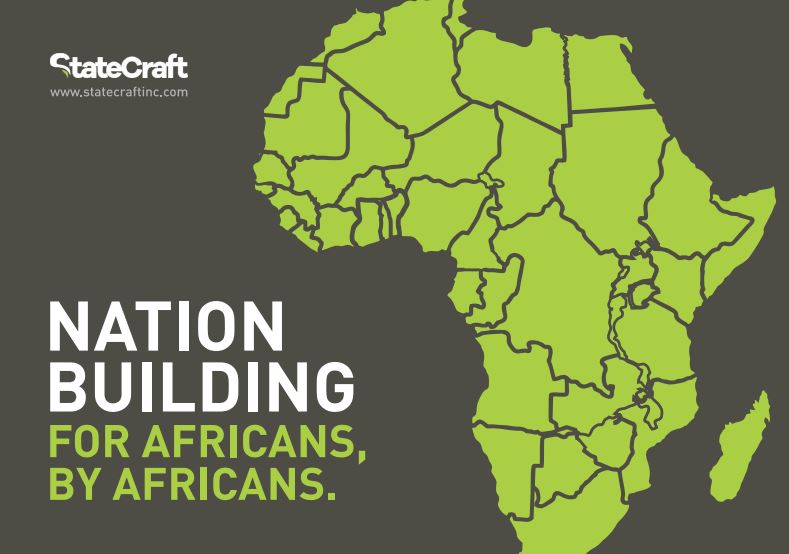Political Consulting will Always be Prodemocratic
Sometimes, there’s that tendency for people to perceive political consulting as a piece of diabolic machinery that seeks to manipulate public opinion in elections – in order to favour the highest-paying candidate. Some even view it as anti-democratic, as according to such people, it is the candidate of one media-savvy political consulting firm (or a group of them) that ends up being trumpeted to the entire public as the person for the job. This is especially the narrative when that candidate is the one who gets elected to that post. But this allegation that is so commonly made against political consulting firms – puppeteering, we will call it – contradicts and muddies the reality it so zealously seeks to elucidate.
The first and most important thing to keep in mind is that there is no truly democratic state in any part of the world today, where political positions are not contended for by at least two political parties. What this implies is that it is impossible for a single political consulting firm to exclusively determine who finishes top in the polls; instead, it should be realised that the outcome of elections, in the absence of violence and malpractices, is mostly influenced by a dialectic wherein signals are transmitted via a variety of media, to inform and portray each firm’s respective candidates in the best light.
In the realm of political consulting, especially when it comes to high-stake matters like elections, a client is not just chosen on the basis of how much he is willing to offer for consulting services. No, this is not the case. A degree of critical thinking is applied in determining who a firm offers its services. And this is usually done on the basis of the candidate’s character, goodwill, and overall political agenda. As amoral as Machiavelli describes the domain of politics, we insist that there is nothing Machiavellian about political consulting, nor is there anything sinister about politics and political participation among a state’s electorate. Those who spread the lies of puppeteering and
misconduct about political consulting firms are in fact, by their actions, revealed to be more thirsty for political apathy, than they are for the political education of the citizenry.
The truth that many do not like to hear or be told is that the public cannot self-engineer itself into an effective machine for the overthrow of brutal or redundant governments without plunging the state, sometimes irredeemably, into an anarchic dispensation. Historically, in modern states where this plunge into absolute chaos has happened, such situations have – like fruits rotting in the sun will attract a swarm of flies – attracted the attention of foreign actors who are usually motivated more by greed, and imperialistic and orgiastic desires to see wars prevail outside of their territories so they can justifiably proliferate arms and other weapons of mass destruction, all the while plundering and looting away such unfortunate state’s resources, than they are by any altruistic concerns for stability and strengthened governance.
In Africa, where dictatorships are quite common, where political crises are rife, and where in recent times, there have been a disturbing number of both attempted and successful coups, especially in the West Africa sub-region, it is very crucial that political consulting be employed for not merely engendering popularity for the sake of making election campaigns successful, but, even better be perceived as an important tool in the area of policy development and implementation, especially along the lines of peaceful transitions of governments, and in the delegation and devolution of power among the various arms and levels of government.
Now, in speaking of high-stake elections on the African continent, some perhaps remember that the 2016 presidential election in Ghana could not have gone the way it did without the involvement of Statecraft Inc. – the leading political consulting firm in Africa – in the campaign of Nana Akufo-Addo, who had only ever nearly won in two previous elections. His campaign team had reached out to StateCraft Inc. to help design a cohesive and compelling messaging, and to develop and implement a hybrid campaign strategy where a focus on digital media intersected with an emphasis on grassroots-oriented outreaches, using limited television and print advertising, and instead, prioritising radio. The result was a majority win for the man who still seats in the Jubilee House, after a successful re-election bid in 2020. Indeed, it was the first time an opposition candidate would be unseating an incumbent president.
But how was this possible? Simple; we followed the crowd. The experience we had picked up during our involvement with on-the-street activism in Nigeria – #EnoughisEnough, #OccupyNigeria, and #BringBackOurGirls – made it possible for us to connect with the discontent that Ghanaians were already feeling in relation to former President John Dramani’s administration. We funnelled their voices into a coherent, and in that case, amplified one. And this became a cry for change that only Nana Akufo-Addo could answer. It was a victory for, and by, the people of Ghana.
But then, even in the age of social media, it would be inaccurate to think that implementing communication strategies is all there is to winning elections. Mobilisation is one huge determining factor. And how do we do this? We advise our clients on forming alliances and delegitimising threats.
Overall, at Statecraft Inc., we believe that democracy and political consulting in Africa, will in modern times remain inextricably linked; and will progressively burgeon, as the unwritten code for conducting elections on the continent continues to favour data-driven campaign strategies, youth involvement, and grassroots political participation; and this, as the old methods of ballot-snatching, bribery and intimidation, gradually fade away.


